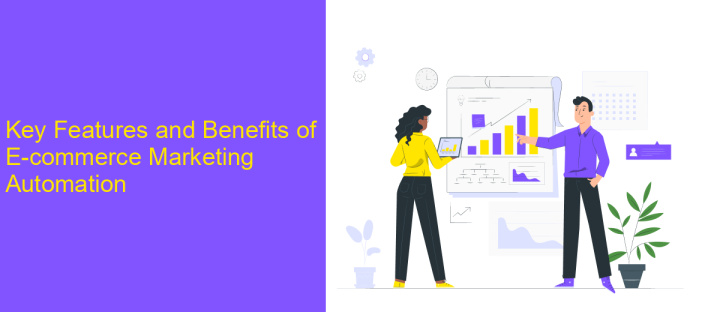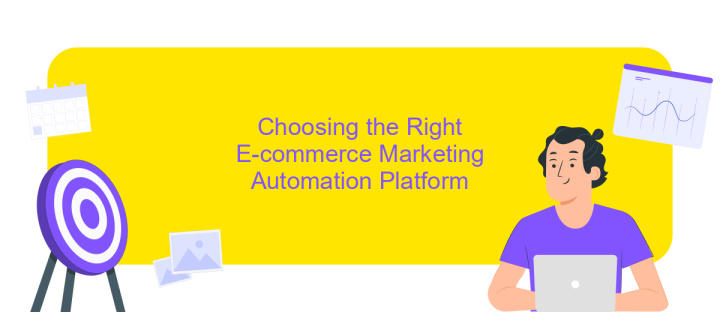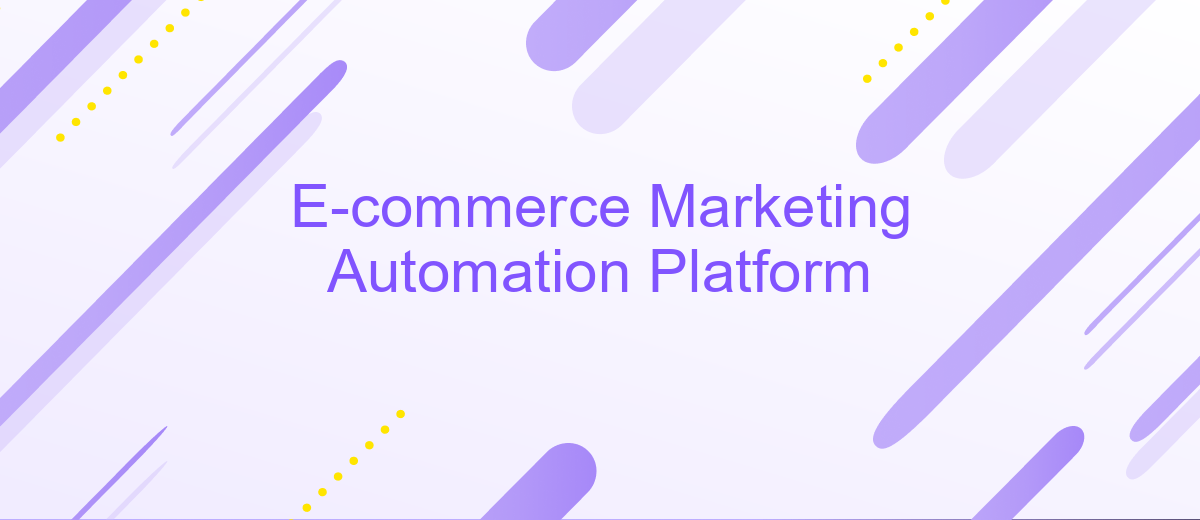E-commerce Marketing Automation Platform
In today's fast-paced digital landscape, e-commerce businesses are constantly seeking innovative solutions to streamline operations and enhance customer engagement. Enter e-commerce marketing automation platforms—powerful tools designed to automate and optimize marketing efforts. These platforms enable businesses to deliver personalized experiences at scale, boost efficiency, and drive sales growth. Discover how leveraging automation can transform your e-commerce strategy and keep you ahead of the competition.
Introduction to E-commerce Marketing Automation Platforms
The rapid growth of e-commerce has transformed the way businesses engage with customers, necessitating more efficient and personalized marketing strategies. E-commerce marketing automation platforms have emerged as indispensable tools for online retailers, enabling them to streamline and enhance their marketing efforts. These platforms leverage data-driven insights and automated processes to deliver targeted campaigns, optimize customer interactions, and ultimately boost sales and customer loyalty.
- Streamlined Campaign Management: Automate email marketing, social media posts, and ad campaigns to save time and increase efficiency.
- Personalization: Use customer data to create tailored marketing messages that resonate with individual preferences and behaviors.
- Analytics and Reporting: Gain valuable insights into campaign performance and customer behavior to make informed decisions.
- Customer Segmentation: Divide your audience into specific segments for more targeted and effective marketing strategies.
- Integration: Seamlessly connect with other tools and platforms to create a cohesive marketing ecosystem.
By harnessing the power of e-commerce marketing automation platforms, businesses can not only improve their operational efficiency but also create more meaningful and personalized customer experiences. As the digital marketplace continues to evolve, leveraging these platforms will be crucial for staying competitive and meeting the ever-changing demands of consumers.
Key Features and Benefits of E-commerce Marketing Automation

E-commerce marketing automation platforms empower businesses by streamlining repetitive tasks, allowing for more efficient campaign management and personalized customer interactions. Key features include automated email marketing, targeted advertising, and customer segmentation. These platforms enable businesses to reach the right audience at the right time with tailored messaging, enhancing customer engagement and boosting conversion rates. By analyzing customer behavior and preferences, businesses can create more effective marketing strategies that drive sales and foster loyalty.
Moreover, integration capabilities are crucial for maximizing the benefits of marketing automation. Services like ApiX-Drive facilitate seamless integration with various e-commerce platforms and marketing tools, ensuring data consistency and operational efficiency. This allows businesses to automate data transfers and synchronize customer information across systems, reducing manual workload and minimizing errors. Ultimately, e-commerce marketing automation platforms not only save time and resources but also enhance the overall customer experience, leading to increased revenue and business growth.
Choosing the Right E-commerce Marketing Automation Platform

Choosing the right e-commerce marketing automation platform is crucial for online businesses aiming to streamline their marketing efforts. The ideal platform should not only automate repetitive tasks but also enhance customer engagement and boost sales. To make an informed decision, businesses must consider several key factors.
- Features: Evaluate the platform's capabilities, such as email marketing, customer segmentation, and analytics.
- Integration: Ensure compatibility with existing systems like CRM, CMS, and payment gateways.
- User-Friendliness: Look for an intuitive interface that requires minimal technical expertise.
- Scalability: Choose a platform that can grow with your business and handle increased traffic and data.
- Pricing: Compare pricing models to find one that fits your budget without compromising on essential features.
Ultimately, selecting the right e-commerce marketing automation platform can significantly impact your business's efficiency and success. By carefully assessing your specific needs and evaluating potential platforms against these criteria, you can make a choice that aligns with your business goals and enhances your marketing strategy.
Implementing and Integrating Your Chosen Platform

When implementing and integrating your chosen e-commerce marketing automation platform, start by thoroughly assessing your business needs and objectives. This will ensure that the platform aligns with your goals and offers the necessary features to enhance your marketing strategies. Consider scalability, user-friendliness, and compatibility with existing systems to streamline the integration process.
Next, assemble a dedicated team to oversee the implementation. This team should include IT professionals, marketing strategists, and customer service representatives to provide a comprehensive approach. Their combined expertise will facilitate a seamless transition and address any challenges that may arise during the integration.
- Conduct a detailed analysis of your current systems and workflows.
- Develop a step-by-step integration plan with clear timelines.
- Ensure data security and compliance with industry regulations.
- Provide training sessions for staff to maximize platform utilization.
- Continuously monitor performance and gather feedback for improvements.
Finally, maintain open communication with the platform provider for ongoing support and updates. This partnership will be crucial in optimizing the platform’s capabilities and adapting to evolving market trends. Regularly review and refine your strategies to fully leverage the benefits of marketing automation and drive sustainable growth for your e-commerce business.


Measuring Success and Optimizing Your Automation Strategy
To effectively measure the success of your e-commerce marketing automation strategy, it is crucial to establish clear KPIs that align with your business goals. Monitor metrics such as conversion rates, customer acquisition cost, and average order value to gauge performance. Utilize analytics tools to track customer engagement and identify patterns in purchasing behavior. Regularly reviewing these metrics will help you determine the effectiveness of your automation efforts and highlight areas for improvement.
Optimizing your automation strategy involves continuous testing and refinement. A/B testing can be a powerful method to compare different approaches and identify the most effective tactics. Consider integrating services like ApiX-Drive to streamline your data flow and enhance your automation processes. This platform can help you connect various applications, ensuring seamless data synchronization and reducing manual effort. By leveraging these tools, you can fine-tune your strategy, improve customer experiences, and ultimately drive better results for your e-commerce business.
FAQ
What is an e-commerce marketing automation platform?
How can e-commerce marketing automation improve customer experience?
What are some common features of an e-commerce marketing automation platform?
How does integration work with other e-commerce tools?
What are the benefits of using an e-commerce marketing automation platform?
Do you want to achieve your goals in business, career and life faster and better? Do it with ApiX-Drive – a tool that will remove a significant part of the routine from workflows and free up additional time to achieve your goals. Test the capabilities of Apix-Drive for free – see for yourself the effectiveness of the tool.

